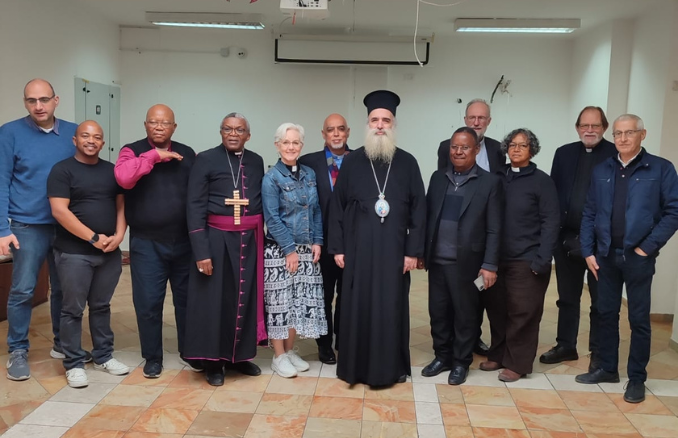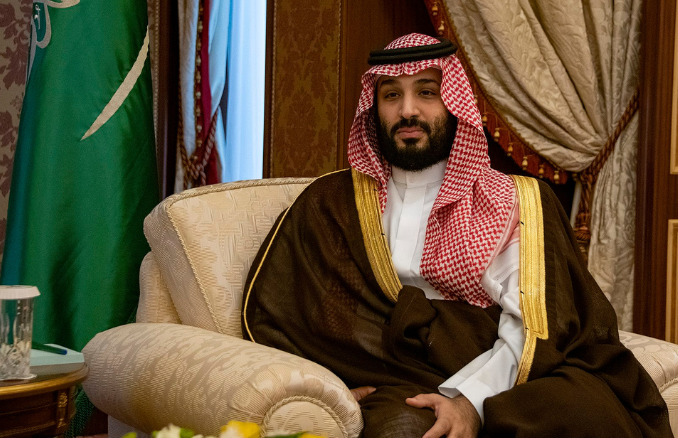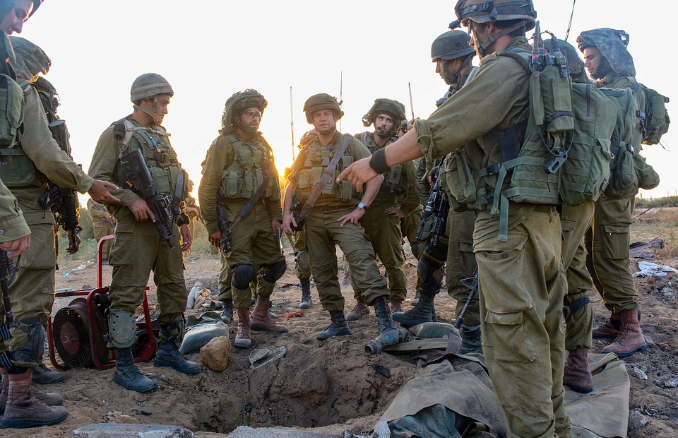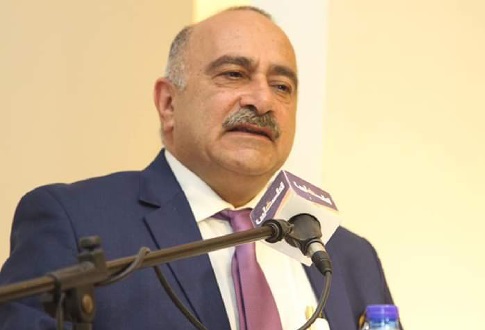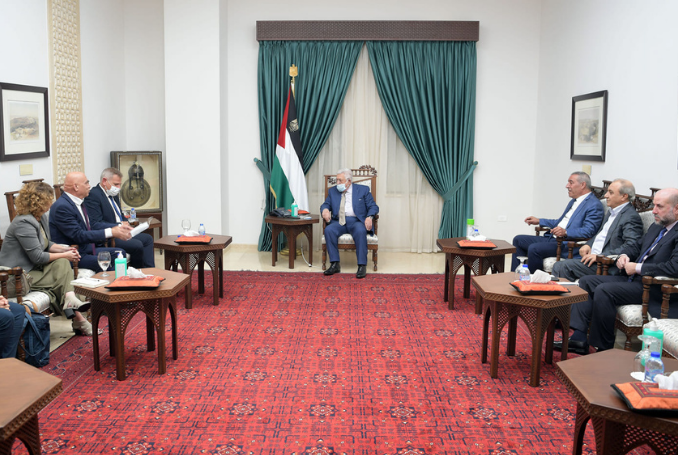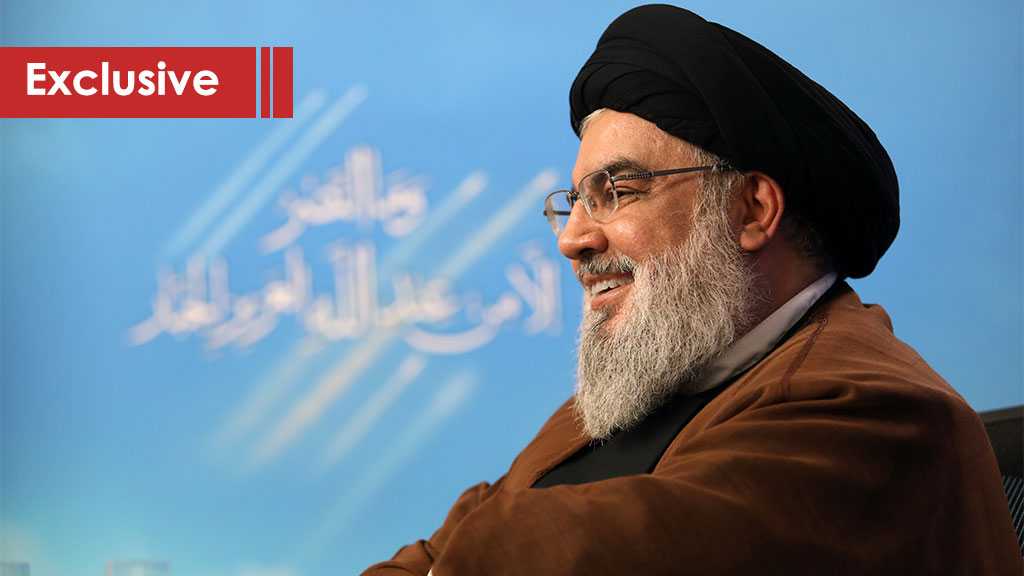By Palestine Chronicle Editors
Imagine the Middle East as a classroom, with big kids, little kids, and bullies.
For many years, Riyadh is, in a sense, a small, but very rich kid.
In a classroom setting, he is usually the most envied one. His relationship with all the other kids is largely, if not entirely, linked to his wealth.
In order to protect, say, his lunch money, and turf at school, he needs protection, which is reliably offered by another kid, named Washington.
In truth, Washington resents Riyadh, and has little if no respect for him, his culture, his religion, or even his skin color.
Whether Riyadh knows this or not, it matters little.
Global Christian Leaders to Spend Christmas in Bethlehem in Solidarity with Palestinians
By Nurah Tape A delegation of Christian leaders from around the world, including a cohort from South Africa, are to spend Christmas in Bethlehem in a demonstration of solidarity with Palestinians in the occupied … Continue reading
Global Christian Leaders to Spend Christmas in Bethlehem in Solidarity with Palestinians
One day, Washington, who also offers protection to other little rich kids in the school, decides to transfer to another class.
Riyadh is very upset but is told by Washington that he has a good friend, named Tel Aviv, who should be able to provide all the needed protection. And that, in fact, other children in the classroom, Abu Dhabi, Manama, and others, have also already agreed to protect the new kid on the block.
Just as Riyadh is ready to join in the protection scheme – let’s call it normalization – the poorest and supposedly weakest of all children in the class, Gaza, stands up to Tel Aviv.
The fight, watched by every child in the classroom, is unparalleled in the history of that school. It is violent and bloody, but throughout the fight, not only does Gaza stand his ground, but he also often emerges on top.
This takes us to the Saudi public opinion poll conducted by the Washington Institute for Near East Policy, whose results were released on Thursday, December 21.
Weak Israel
Three major components that are worth a pause, the third being the most significant:
One: 96 percent of all Saudis believe that “Arab countries should immediately break all diplomatic, political, economic, and any other contacts with Israel, in protest of its military action in Gaza.”
Practically, this means that the Saudi people are in no mood to normalize with Israel and are unlikely to be reconsidering this any time soon. There goes the Washington-sponsored normalization scheme.
Two: 95 percent of Saudi citizens think that Hamas did not kill civilians during its military operation on October 7 and only 16 percent think that “Hamas should stop calling for the destruction of Israel, and instead accept a permanent two-state solution”.
Overwhelming Saudi Majority Rejects Normalization, Supports Resistance – Poll
By Palestine Chronicle Staff An overwhelming majority of Saudi citizens reject normalization and think Israel is so weak and internally divided that it can be defeated someday. A new poll, conducted by the Washington … Continue reading
Overwhelming Saudi Majority Rejects Normalization, Supports Resistance – Poll
These numbers indicate both outright support for the Palestinian Resistance and the willingness to directly challenge the pro-Israel narrative, communicated largely by Western media, which constantly tries to implicate Palestinian Resistance in massacres of civilians, among other atrocities.
Three: This is possibly the most important and relevant to our classroom’s metaphor. 87 percent of Saudis think that “recent events show that Israel is so weak and internally divided that it can be defeated.”
One of the main aspects of normalization between Arabs and Israel is the entrenched belief that Israel is regionally powerful and cannot be defeated even by all Arab armies combined.
The October 7 and the subsequent Israeli war on Gaza has shattered that myth.
Aside from the agreement among all Arabs that Israel is a weak country – militarily defeated by Hamas, unable to change the rules of the game against Hezbollah, and practically, under Yemeni sanctions – Arabs now believe that Israel is defeatable.
Of course, it is, but what matters is that the psychological barrier that Israel has constructed, thanks to Washington’s support and propaganda, has also been breached.
Bad News from the Front – Top Israeli Analyst on War Gone Bad and the ‘Unbridgeable Gap’
By Romana Rubeo In the article, Harel illustrates several critical issues that are making it particularly difficult for Tel Aviv to prolong this phase of the war. In an article published on Friday in … Continue reading
Bad News from the Front – Top Israeli Analyst on War Gone Bad and the ‘Unbridgeable Gap’
Moreover, by collectively asserting that Israel can be defeated, the Saudis are declaring, albeit indirectly, that they are part and parcel of the effort to defeat it, and they are invested, at least emotionally, for now, in the Palestinian-Arab Resistance.
Israel still hopes to be rewarded for a potential protection agreement for the Saudi kid in the classroom. But that Saudi kid has no reason whatsoever to subscribe to such a bad deal.
If the potential protector, with the help of all of his bully friends, cannot not protect himself against Gaza, why should Riyadh, Abu Dhabi, Manama and all the others believe that continuing with their normalization path will be of any benefit to them in the short, or even long term?
Related Videos
LATEST POSTS
- ‘The Message is Love’ – Famed US Artist Gives ‘Free Palestine’ Speech at Homecoming Concert (VIDEO)
- Horrific Massacre in Maghazi, Thousands Flee from Central Gaza Strip – BREAKING
- ‘Jesus Would Be Born under Gaza Rubble’ – Palestinian Pastor
- Israeli Forces ‘Executed’ Dozens of Elderly People in Gaza – Euro-Med Monitor
- ‘Ready to Escalate’ – Relatives of Israeli Captives Protest in Tel Aviv
- ‘Declaration of Conscience’ Denounces Gaza Genocide, West’s Complicity
- Our Guards in Gaza Protected Us from Bombing with Their Bodies – Freed Israeli Captive
- The Suffering of Children in Gaza Must Compel Us to Act, not Despair
- Israel Orders Palestinians to Move into Areas Targeted by Airstrikes – UNRWA
- Israeli Army Admits Killing of Nine Soldiers in Gaza Battles
Filed under: "Israel", Lebanon Islamic Resistance - Hezbollah, Palestine | Tagged: "Peace with Israel", Besieged Gaza Strip., Normalization with Israel, Operation Al-Aqsa Flood, Palestinian Resistance factions, Solidarity With Palestine, The Western Media | Comments Off on Gaza vs the Bully: What Does the Saudi Poll Tell Us about Normalization? – ANALYSIS





